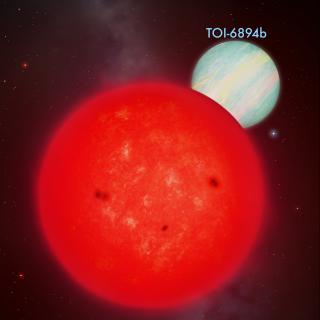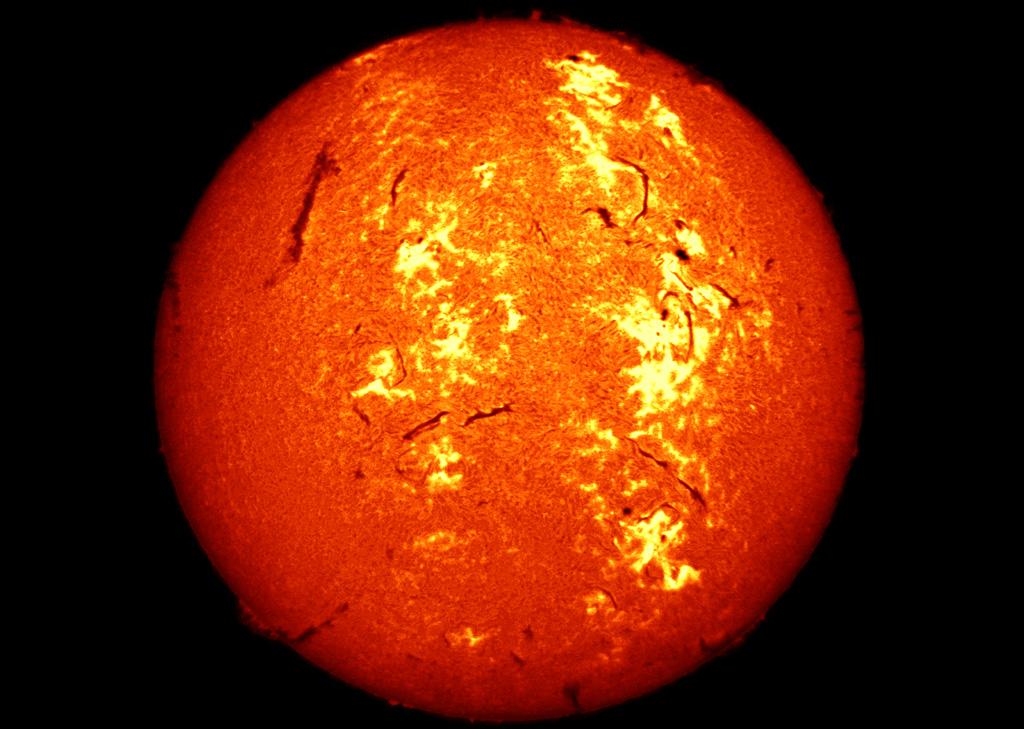It may interest you
-
 The headquarters of the Instituto de Astrofísica de Canarias (IAC) and its technological headquarters, IACTEC, open their doors to the public at their Open Days as part of Open Government Week 2025. This initiative, promoted by the Open Government Partnership worldwide, seeks to bring public administrations closer to citizens and promote the values of transparency, integrity, participation and accountability. The event at the IAC headquarters will take place on Monday 19 May, while the IACTEC will open its doors on Tuesday 20 May. Both days will be held in person, with two visiting hoursAdvertised on
The headquarters of the Instituto de Astrofísica de Canarias (IAC) and its technological headquarters, IACTEC, open their doors to the public at their Open Days as part of Open Government Week 2025. This initiative, promoted by the Open Government Partnership worldwide, seeks to bring public administrations closer to citizens and promote the values of transparency, integrity, participation and accountability. The event at the IAC headquarters will take place on Monday 19 May, while the IACTEC will open its doors on Tuesday 20 May. Both days will be held in person, with two visiting hoursAdvertised on -
 El Instituto de Astrofísica de Canarias (IAC) participa como colaborador en Starmus Festival que se celebra desde este viernes 25 de abril hasta el lunes 28 en La Palma. El IAC lleva su actividad divulgadora y su conocimiento científico a la agenda de este festival internacional que fusiona ciencia, arte y tecnología de vanguardia. Dentro del programa de Lectures , en el Hotel Meliá La Palma, el director del IAC, Valentín Martínez Pillet, impartirá una charla con el título ‘Living with a star: the good, the bad, and the ugly’. Además, la subdirectora del centro, Eva Villaver Sobrino, formaráAdvertised on
El Instituto de Astrofísica de Canarias (IAC) participa como colaborador en Starmus Festival que se celebra desde este viernes 25 de abril hasta el lunes 28 en La Palma. El IAC lleva su actividad divulgadora y su conocimiento científico a la agenda de este festival internacional que fusiona ciencia, arte y tecnología de vanguardia. Dentro del programa de Lectures , en el Hotel Meliá La Palma, el director del IAC, Valentín Martínez Pillet, impartirá una charla con el título ‘Living with a star: the good, the bad, and the ugly’. Además, la subdirectora del centro, Eva Villaver Sobrino, formaráAdvertised on -
 An international team of astronomers, including researchers from the Instituto de Astrofísica de Canarias (IAC), the University of Liège and collaborators in UK, Chile, the USA, and Europe, has discovered a transiting giant planet orbiting the smallest known star to host such a companion — a finding that defies current theories of planet formation. The host star, TOI-6894 , is a red dwarf with only 20% the mass of the Sun , typical of the most common stars in our galaxy. Until now, such low-mass stars were not thought capable of forming or retaining giant planets. But as published today inAdvertised on
An international team of astronomers, including researchers from the Instituto de Astrofísica de Canarias (IAC), the University of Liège and collaborators in UK, Chile, the USA, and Europe, has discovered a transiting giant planet orbiting the smallest known star to host such a companion — a finding that defies current theories of planet formation. The host star, TOI-6894 , is a red dwarf with only 20% the mass of the Sun , typical of the most common stars in our galaxy. Until now, such low-mass stars were not thought capable of forming or retaining giant planets. But as published today inAdvertised on
